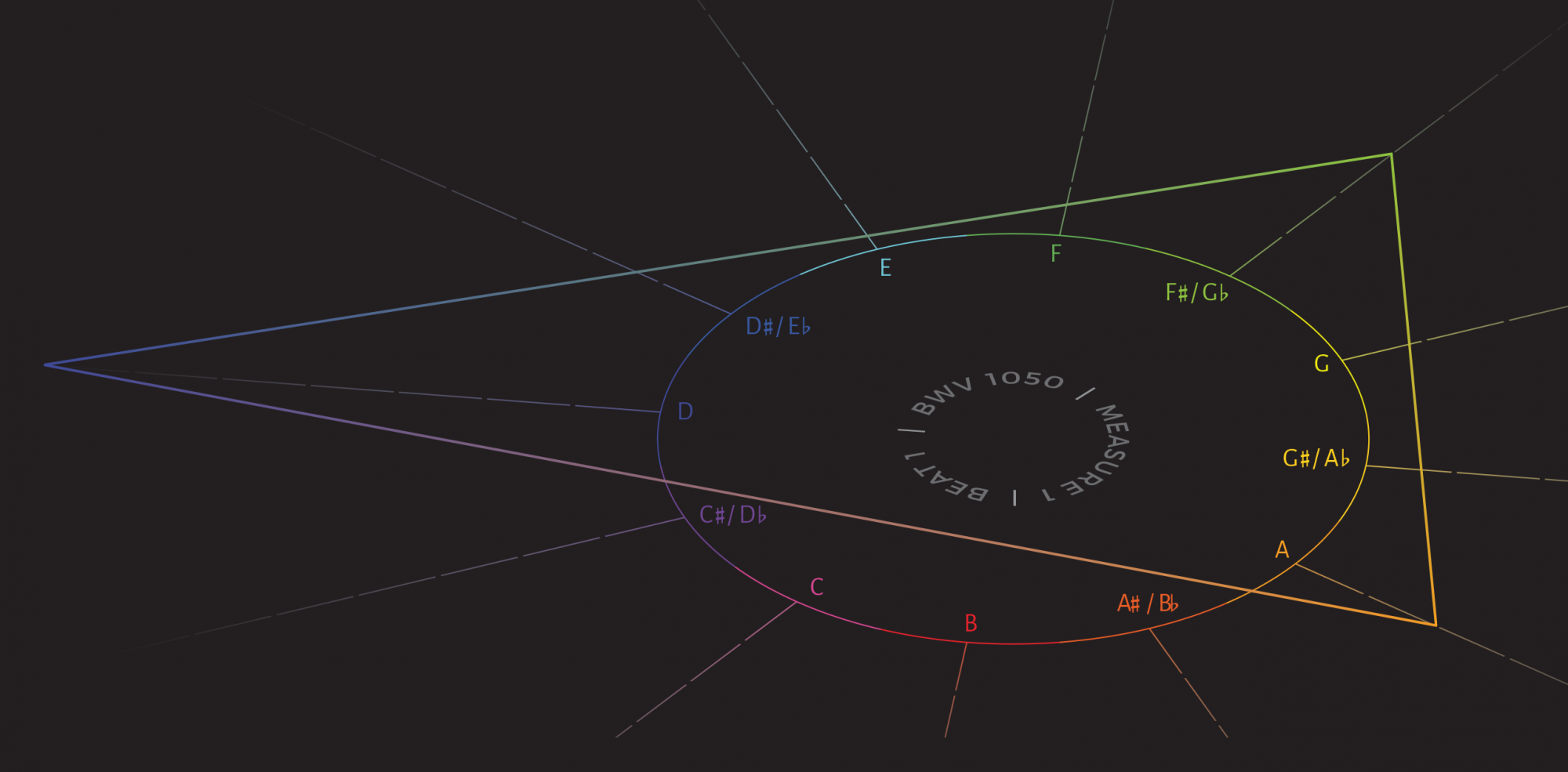View PDF
About this Volume
We are thrilled to present Volume 33 of Intégral, the journal’s first completely online, open-access volume. Volume 33 features three articles on a wide range of music-theoretical topics, a short-essay symposium on open-access publication, and two book reviews on noteworthy recent scholarship. Each piece appears as both a downloadable PDF and a readable HTML format online.
Jeffrey Swinkin’s article (pre-released online in October 2019) interweaves analysis and performance in a consideration of Beethoven’s Largo Appassionato from Op. 2, No. 2. After first presenting his own Schenkerian analysis, motivic analysis, and performance of the piece (all of which are brought to life in animated analyses), Swinkin turns to six recorded performances. The analysis of these recordings highlights intersections between theory, performance, and aesthetics.
Kyle Adams teases apart the sonic factors that influence our hearings of recent EDM-inspired popular music, constructing a metaphor of form-functional (in)stability that spurs the listener to multiple, conflicting, and rich interpretations. Adams’s article foregrounds texture as a form-defining component of post-millennial popular music, elevating instrumentation, dynamics, distortion, and especially timbre to the role of formal signifiers.
In the third and final article of this volume, Alexander Morgan leads the reader through a comprehensive account of the ternary suspension, spanning the Renaissance and Baroque periods, while also introducing a novel component of suspension theory: the “perfection phase.” Morgan’s account makes use of corpus analysis and extends a rigorous scholarly attitude to pedagogical concerns, arguing that textbooks have needlessly neglected the distinction of the ternary suspension as a Renaissance trope.
Early in our transition to online, open-access publication, four preeminent music theorists agreed to contribute short essays to a symposium inaugurating the new format of the journal. In her essay, Jennifer Iverson connects open-access scholarship to broader issues of access and disability, articulating some of the benefits as well as the pitfalls of the format. Nancy Yunhwa Rao encourages cross-disciplinary discourse, viewing the open-access medium as a possible avenue for connecting disparate subfields and dreaming up novel journal formats and intercultural exchanges. Judy Lochhead demonstrates the power of color annotations in visualizing music-theoretical concepts, one of many aspects of online publication that make scholarship more accessible, understandable, and intriguing. And William M. Marvin charts the history of some of our field’s most important online publications, giving a behind-the-scenes account of the motivations for the online establishment of the Journal of Music Theory Pedagogy as well as several capabilities of online publication.
We are also excited to share some of the first reviews of two distinguished contributions to music theory scholarship from 2018. John Paul Ito’s review of Brahms and the Shaping of Time, edited by Scott Murphy, provides not only a detailed and incisive account of each essay in the award-winning compilation, but also proposes future directions for Brahms studies in the realm of theorizing musical ambiguity. Lucie Vágnerová’s review of Jennifer Iverson’s monograph Electronic Inspirations: Technologies of the Cold War Musical Avant-Garde offers an informative overview of the work’s contributions to studies of the Westdeutscher Rundfunk studio in Cologne during the post-war decade. Vágnerová praises, in particular, how the book situates the music made in the studio within a complex web of outside “actors” and influences.
Looking Ahead
We appreciate the warm reception with which Intégral’s first online ventures have been met, and we are happy to present the complete volume to our community of music scholars. Since launching our website in Fall 2019, we have already received an increased number of submissions on a greater diversity of topics than our journal typically sees; this is an exciting moment for us! Alongside all future volumes, the website hosts all back issues, as well as a volume index and submission guidelines. We continue to invite scholarship for Volume 34 and beyond on a broad range of musical topics, including theory, analysis, and criticism. We welcome especially work that incorporates the multimedia possibilities of online publication. For all submissions, please use our anonymous submissions page, located at https://www.esm.rochester.edu/integral/submission-page. With our increasing number and diversity of submissions, we also plan to expand our editorial board, particularly to accommodate scholarly reviews of research in popular music, contemporary music, non-western music, multimedia, and experiential approaches to analysis! If you are interested in assisting Intégral in this capacity, we hope you will write to us at integral.editor@gmail.com.
Our move online is not simply an end, but rather a next step in our endeavor to ever improve our journal and its ability to reach our audience. We already have a few projects on our radar, including guaranteeing screen reader compatibility to our HTML articles and deepening our presence on open-access research websites such as Google Scholar. In the interest of continued growth, we have created a feedback page on our website. We welcome comments, suggestions for improvement, and reports of problems encountered on the site.
As always, we thank you for supporting Intégral through your readership, submissions, and editorial contributions. May the next decade of music scholarship include ever wider visions for what constitutes music theory scholarship and discourse!
Sam Reenan & Lauren Wilson
Co-Editors

